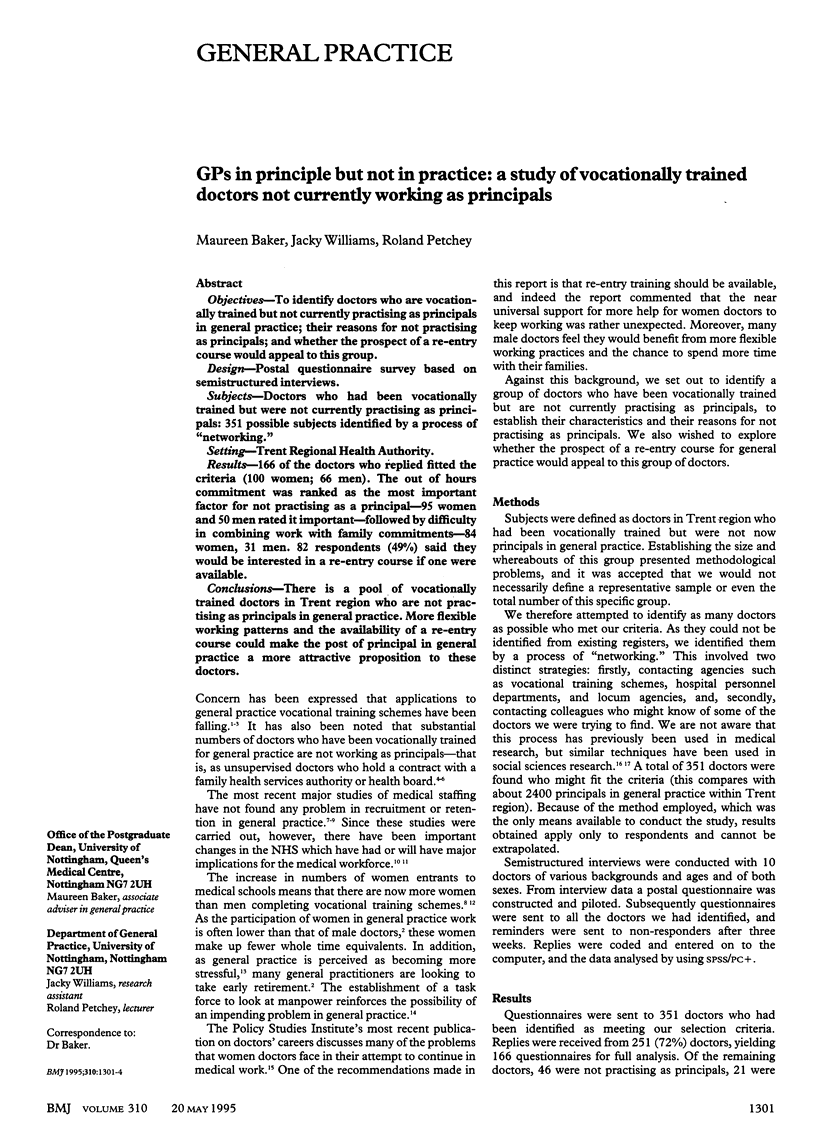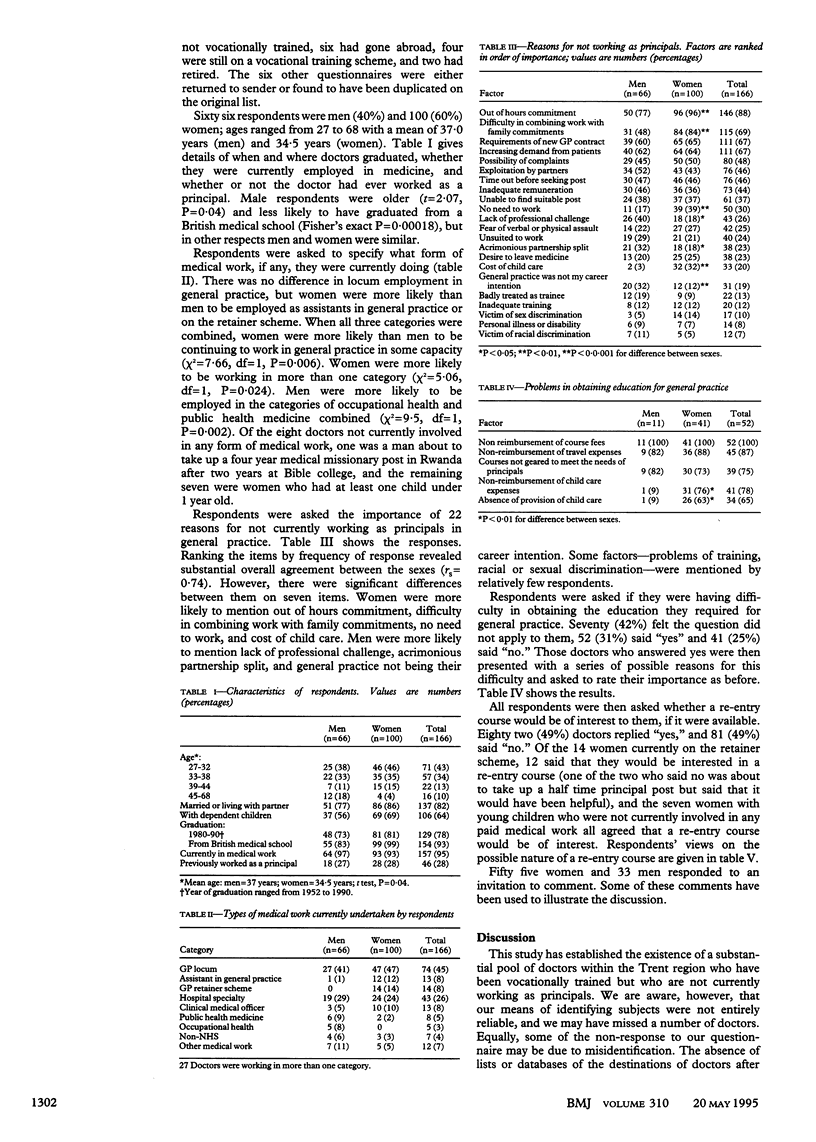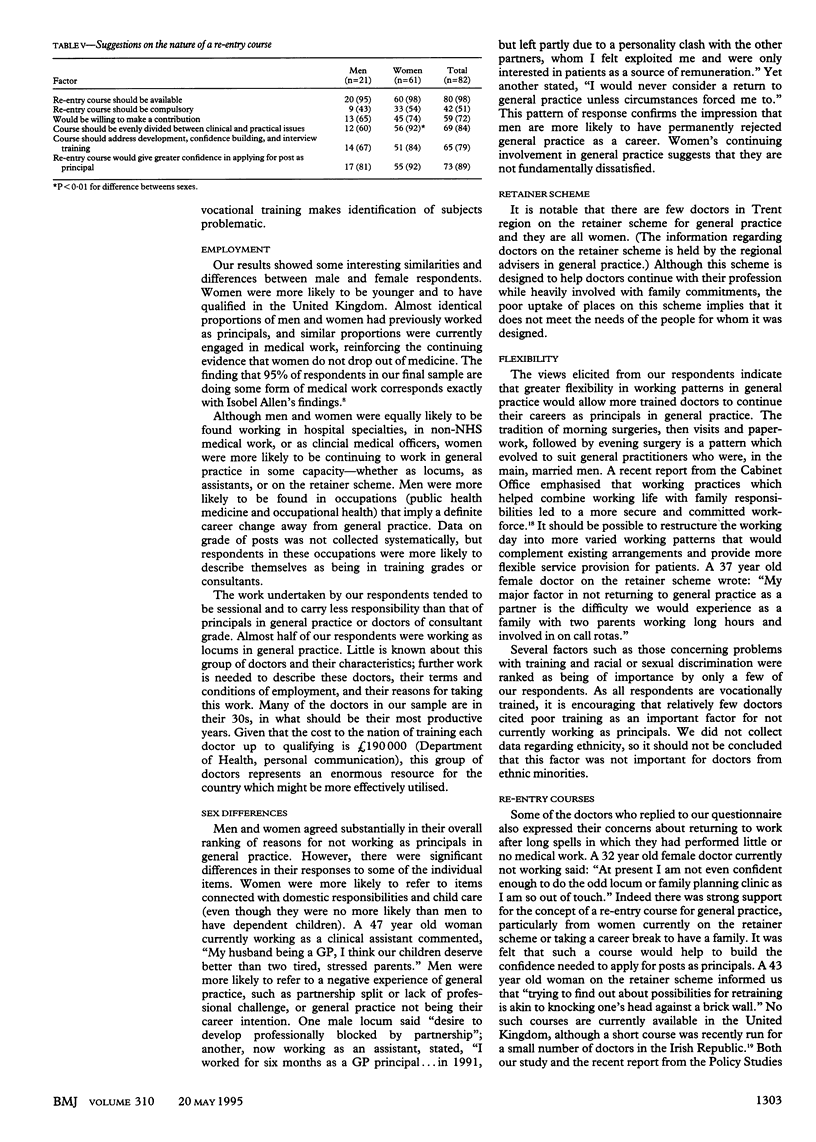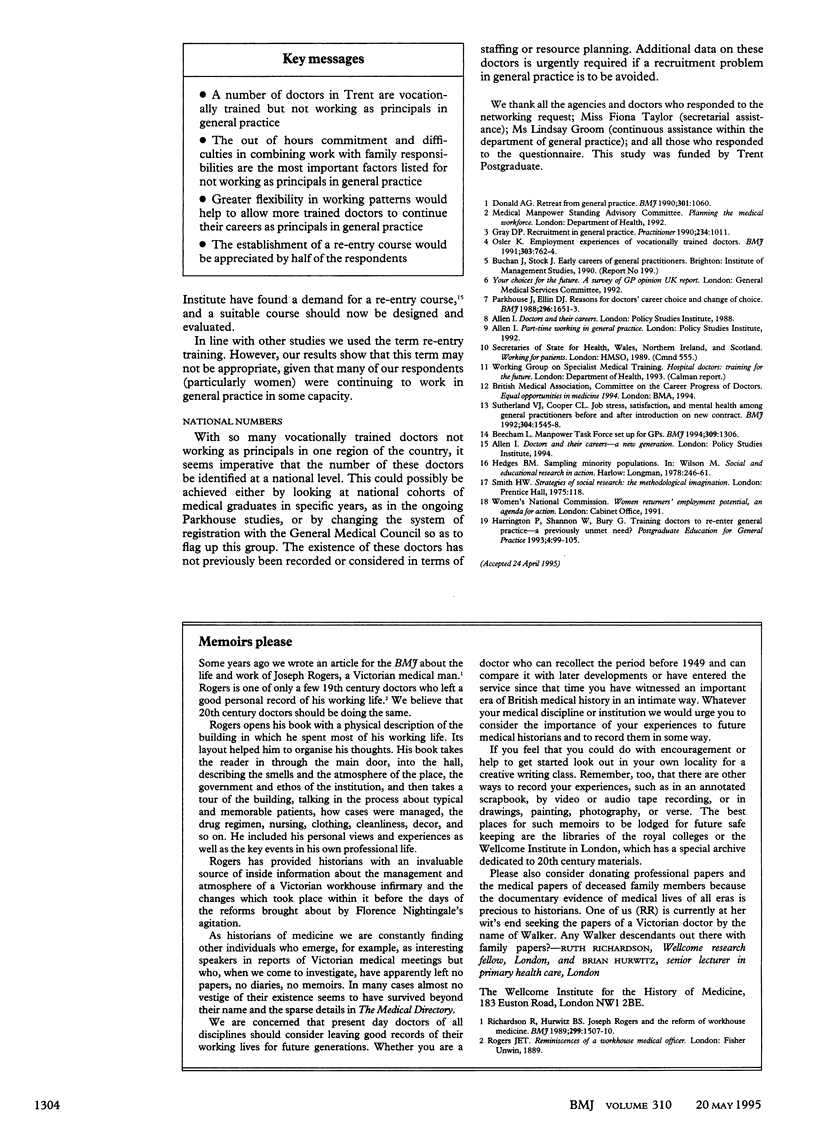Abstract
OBJECTIVES--To identify doctors who are vocationally trained but not currently practising as principals in general practice; their reasons for not practising as principals; and whether the prospect of a re-entry course would appear to this group. DESIGN--Postal questionnaire survey based on semistructured interviews. SUBJECTS--Doctors who had been vocationally trained but were not currently practising as principals: 351 possible subjects identified by a process of "networking." SETTING--Trent Regional Health Authority. RESULTS--166 of the doctors who replied fitted the criteria (100 women; 66 men). The out of hours commitment was ranked as the most important factor for not practising as a principal--95 women and 50 men rated it important--followed by difficulty in combining work with family commitments--84 women, 31 men. 82 respondents (49%) said they would be interested in a re-entry course if one were available. CONCLUSIONS--There is a pool of vocationally trained doctors in Trent region who are not practising as principals in general practice. More flexible working patterns and the availability of a re-entry course could make the post of principal in general practice a more attractive proposition to these doctors.
Full text
PDF



Selected References
These references are in PubMed. This may not be the complete list of references from this article.
- Donald A. G. Retreat from general practice. BMJ. 1990 Nov 10;301(6760):1060–1060. doi: 10.1136/bmj.301.6760.1060. [DOI] [PMC free article] [PubMed] [Google Scholar]
- Osler K. Employment experiences of vocationally trained doctors. BMJ. 1991 Sep 28;303(6805):762–764. doi: 10.1136/bmj.303.6805.762. [DOI] [PMC free article] [PubMed] [Google Scholar]
- Parkhouse J., Ellin D. J. Reasons for doctors' career choice and change of choice. Br Med J (Clin Res Ed) 1988 Jun 11;296(6637):1651–1653. doi: 10.1136/bmj.296.6637.1651. [DOI] [PMC free article] [PubMed] [Google Scholar]
- Richardson R., Hurwitz B. Joseph Rogers and the reform of workhouse medicine. BMJ. 1989 Dec 16;299(6714):1507–1510. doi: 10.1136/bmj.299.6714.1507. [DOI] [PMC free article] [PubMed] [Google Scholar]
- Sutherland V. J., Cooper C. L. Job stress, satisfaction, and mental health among general practitioners before and after introduction of new contract. BMJ. 1992 Jun 13;304(6841):1545–1548. doi: 10.1136/bmj.304.6841.1545. [DOI] [PMC free article] [PubMed] [Google Scholar]
- Villar R. Problems of total hip replacement. Practitioner. 1990 Feb 8;234(1482):101–104. [PubMed] [Google Scholar]


